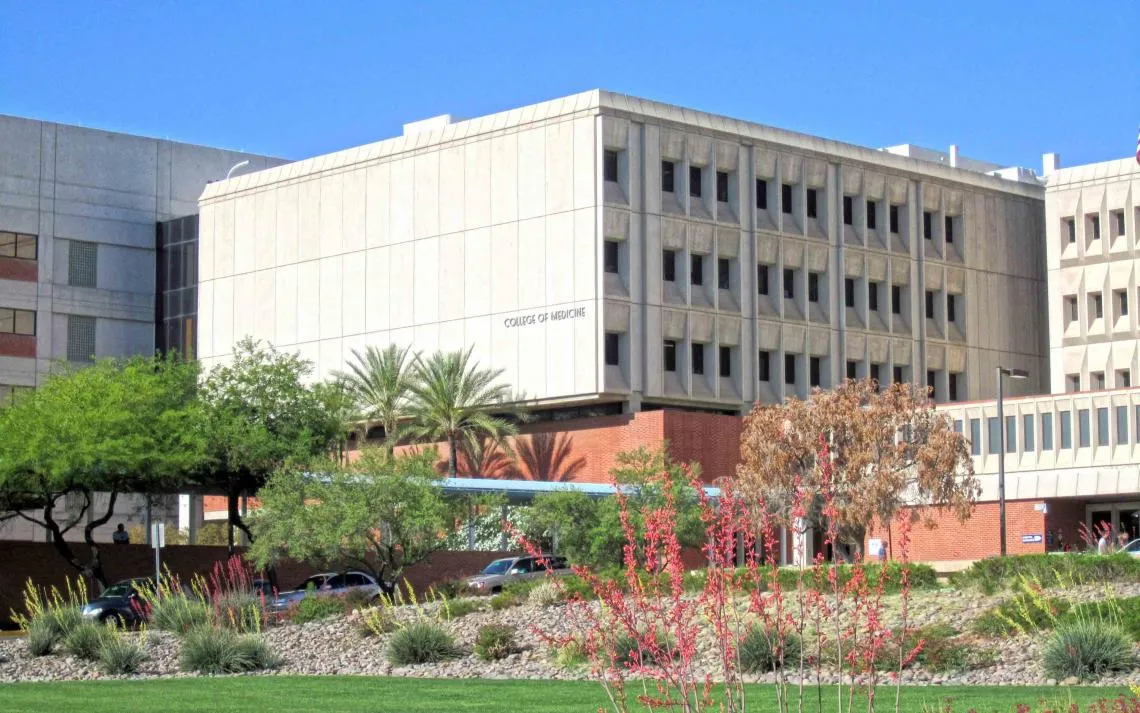UA Alumnus Leaves $8.8M to College of Medicine – Tucson
The University of Arizona College of Medicine – Tucson has received an $8.8 million gift from the estate of Dr. Ronald K. Baker, a 1975 alumnus of the college, including the largest endowed scholarship gift ever received by the college.

The University of Arizona College of Medicine – Tucson has received an $8.8 million gift from the estate of Dr. Ronald K. Baker, a 1975 alumnus of the college, including the largest endowed scholarship gift ever received by the college.
A significant portion of the gift, $5.9 million, will establish the Ronald K. Baker, M.D., Scholarship Endowment to support medical students at the college who have financial need. The remaining $2.9 million will establish the Ronald K. Baker Endowed Chair in Anesthesiology, which will be held by Dr. Randal O. Dull, chair of the Department of Anesthesiology.
Funding for the endowed chair will maximize the college's investments in promising research programs and faculty recruitment while also helping the UA generate additional funding to sustain and expand teaching and research in key areas. The gift provides scholarship support for current and future classes of UA medical students with a single requirement: financial need.
"This gift is an incredible vote of confidence in the enduring value of a UA education," said UA President Robert C. Robbins. "I am floored by Dr. Baker's thoughtful generosity, which will have an immediate and long-term impact on the UA College of Medicine – Tucson. His legacy will live on to shape the future of medicine through research and teaching, but particularly in the careers of students who are given the opportunity to excel and become compassionate physicians, regardless of their financial circumstances."
In the United States, 75 percent of medical school students who graduated in 2018 had student loan debt, according to the Association of American Medical Colleges. The average debt was $196,520.
Baker, who died June 8, 2017, at the age of 70, earned two degrees at the UA: a doctorate in chemistry and a medical degree.
"Dr. Baker did not forget his time at the University of Arizona and the role it played in shaping his career," said John-Paul Roczniak, president and CEO of the University of Arizona Foundation. "I am so proud that it meant enough that he left his estate to benefit future generations of medical students. It's an incredible legacy."
Baker was the only son of parents of moderate means – his father worked at the post office and his mother worked from home, keeping books for a few small businesses. He completed his bachelor's degree in three years and then moved to Tucson to enroll in the UA's doctoral program in chemistry. After graduating, he was unhappy with his job prospects, which would have entailed moving east of the Mississippi. So he opted to attend the UA's medical school.
He spent his entire career working as an anesthesiologist in Denver. Baker, who never married, volunteered to work holidays and night shifts so his colleagues could be home with their families.
"Ron loved the outdoors and spent countless hours hiking, fly-fishing, elk hunting and four-wheeling," recalled John Thomas, who had known Baker since childhood. "He bought himself a 35-acre tract in a wooded area south of Franktown and built a house on it. He had a magnificent view from his back deck and spent hours out there, especially with the hoards of hummingbirds that came to his many feeders."
He was a great cook and loved dogs, but never had them as pets because his schedule kept him away from home too much, Thomas said. Instead, he adopted rescued ferrets.
When he watched television, Baker turned to the History channel or PBS. He subscribed to more than two dozen magazines, passing them on to friends he knew would enjoy them.
"He was a kind soul, often thinking of others," Thomas said.
"This is a truly remarkable and unexpected gift to the UA College of Medicine – Tucson. Dr. Baker's gift illustrates his belief in the promise of our college's future and the UA's distinct leadership in medical education," said Dr. Irving Kron, interim dean of the college. "We are deeply grateful to our alumni, whose spirit of generosity will galvanize others to invest in our students and faculty members in areas of greatest need and significant impact."

